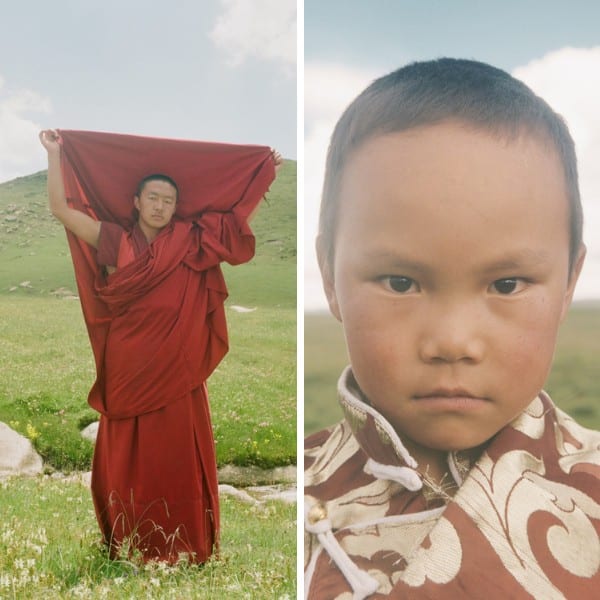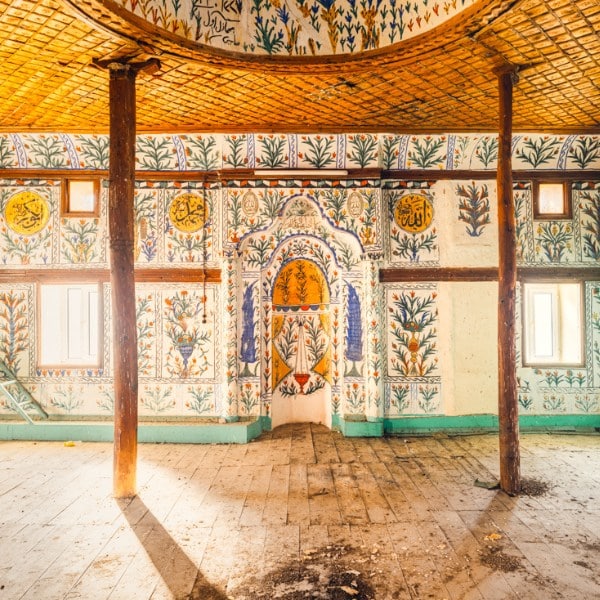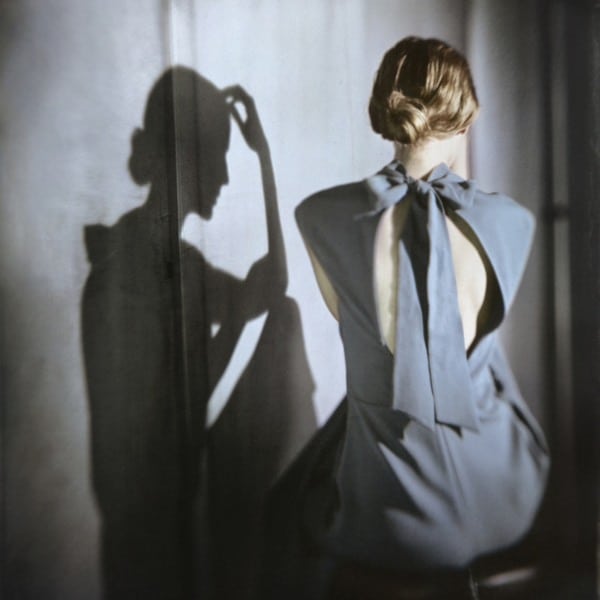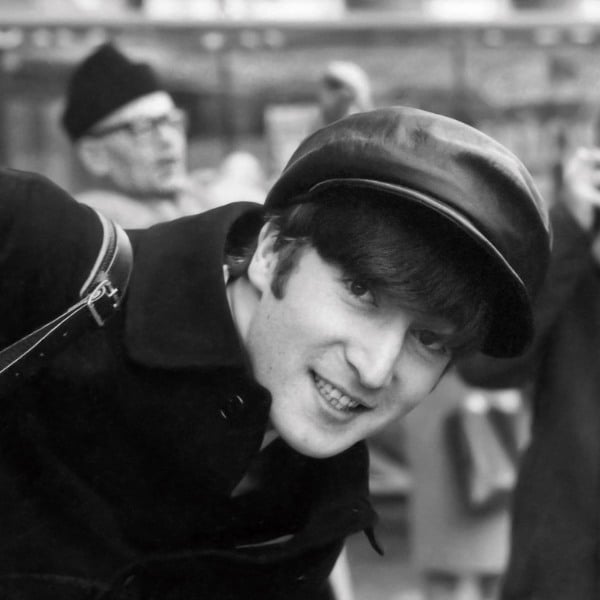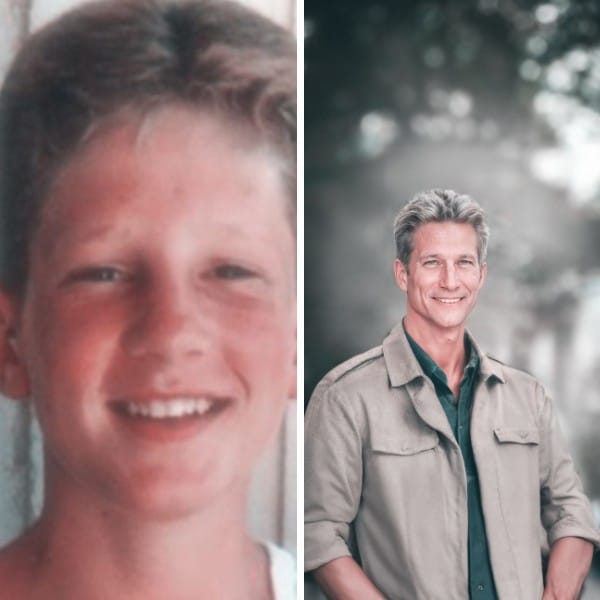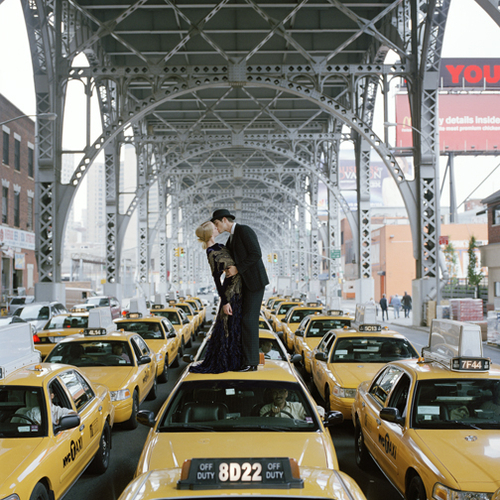
Today, it is with great pleasure that I bring you a Met Exclusive – a rare, one-on-one interview with photographer Rodney Smith. Smith isn't your typical photographer. Though he graduated from the University of Virginia, he earned a Masters in Theology from Yale and later taught at that prestigious university. He's worked with editorial and corporate clients that include New York Times, GQ, American Express and B.M.W and a few years ago, he joined New York Magazine's fashion director in Times Square and Coney Island for a timeless photo shoot highlighting New York nightlife.
With a career that spans forty years, Smith regularly teaches at the Santa Fe Photographic Workshop in New Mexico where he works with people from all walks of life – including art directors, serious amateurs, painters, and producers in helping them find their unique voice. He's also published two books, recently released a third called The End. The limited-edition art book is 16×20 inches, weighs a whopping 15 lbs and retails for $750.
On a personal note, Smith is one of those photographers I've been a fan of for a very long time. Besides Tim Walker, there's no other photographer out there, in my mind, whose photos embody a magical combination of style, wit and whimsy. Smith taps into shared emotional feelings that transcend borders or language – like hope, happiness and curiosity.
Learn more about talented photographer Rodney Smith in our exclusive interview with him below. Note, this is only Part I of 2.
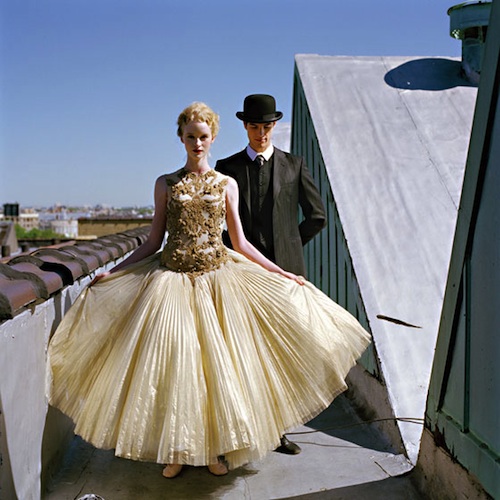
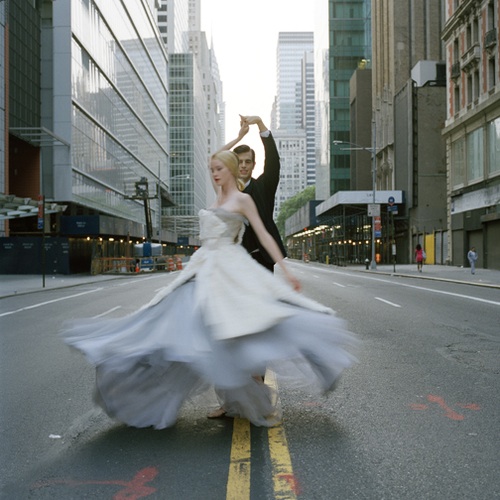
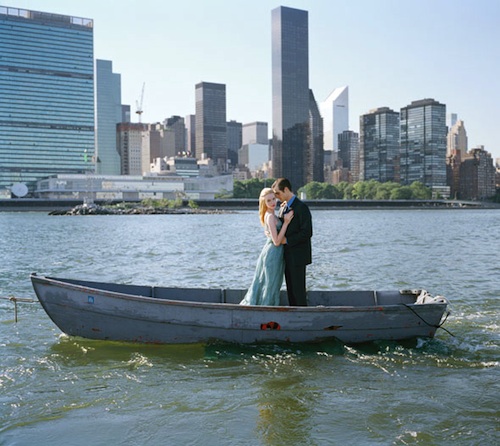
You've talked about finding a voice. Do you feel as though that comes through time and years of experience or do you feel as though some photographers are born with a natural gift?
I definitely think that every single human being has the potential to express their voice. The process of learning how to get in touch with it is very difficult and most people would much rather spend their energies talking about other things than think about the things that really complement or help them develop and nurture their own voice.
This relates to any artistic endeavor, whether it be music or painting, they will spend a lot of time learning or talking about the techniques that are immediately in front of them but not the deep psychological issues that make one person special and unique from one other.
Many people believe that one is born with talent and some people have it and some people don't. I actually don't believe that. I believe that everyone has the ability; because everyone is a human being and everyone has feelings. If they are able to express those feelings, than that is part of their talent.
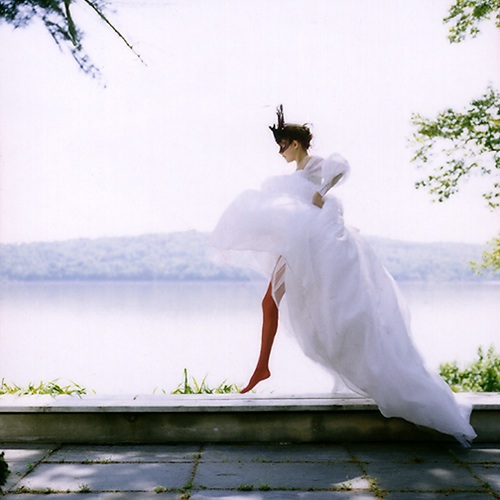
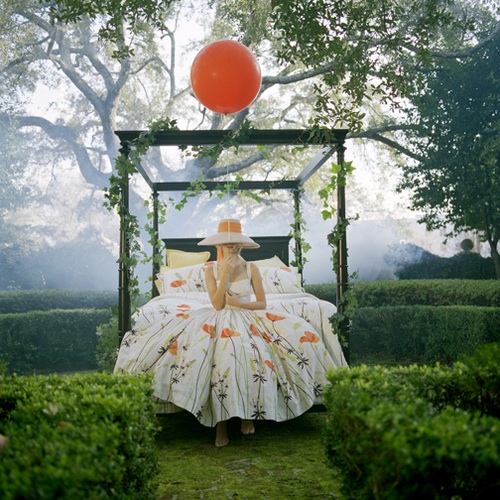
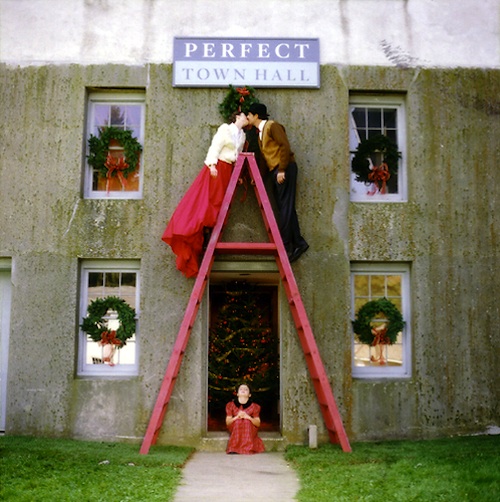
Your photos are filled with optimism and happiness and you've talked about how they're aspirational. Why did you choose this style? What messages about life do you want to convey?
I'm not sure it's so much an intellectual endeavor as it is an emotional one. I think that most of contemporary art, whether it be theater, music, painting or photography, nurtures or supports the same message. They are sociologists.
Great art has always been saying a giant ‘yes' to life. The Renaissance was a period in which people in every medium were very aspirational, they were classical in their form, they were positive about the world's views, they were excited to be alive. That is what nurtures great art.
Everyone is aware of the evil in the world. I think what people are not aware of is the potential for doing good.
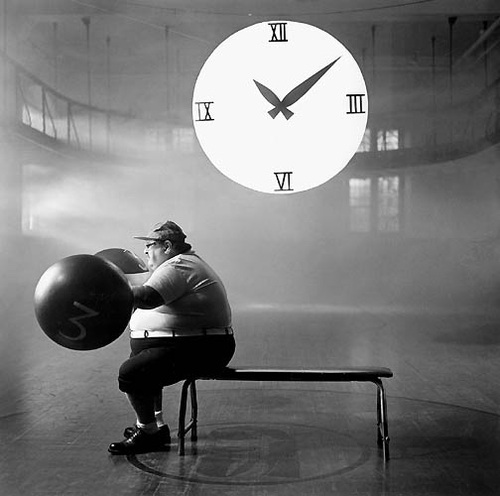
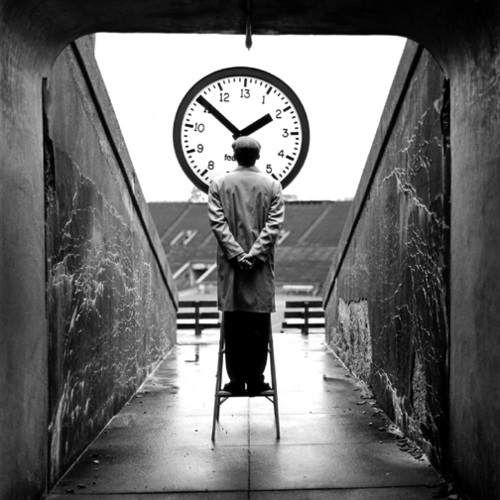
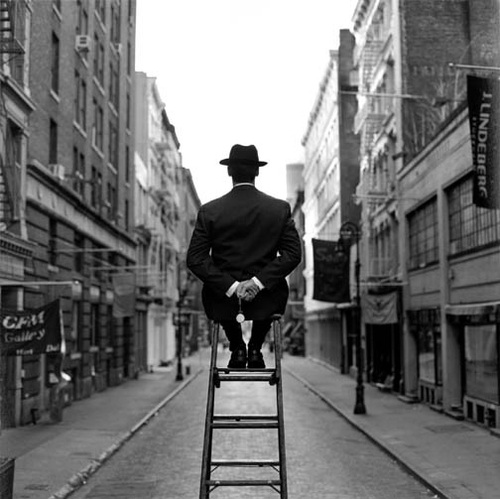
What is it about clocks that you love? What do they represent to you?
The question of time is very much always around me or with me. That is, in an almost simplistic way – is it a good time or a bad time. Also, what time is it? What time is it in one's life – is it the early years, the latter years, the middle years? Time has an important significant to me metaphorically.
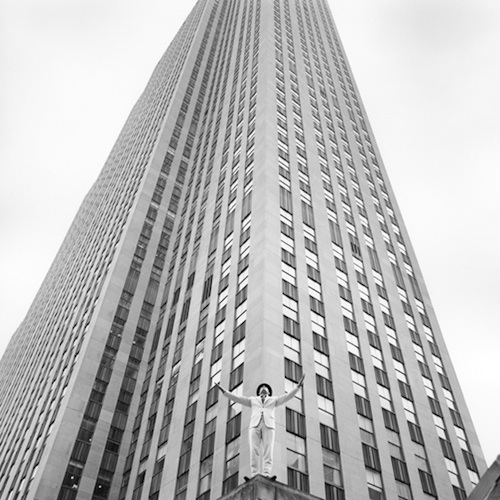
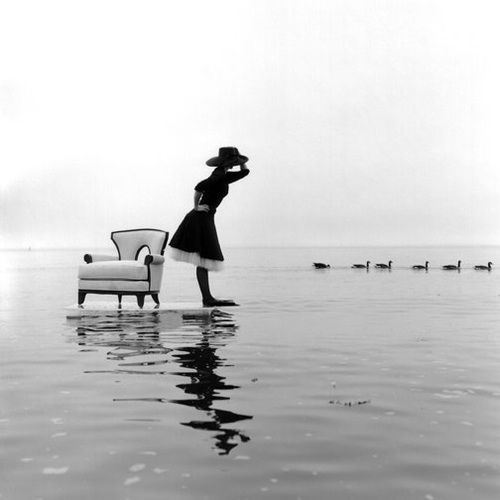
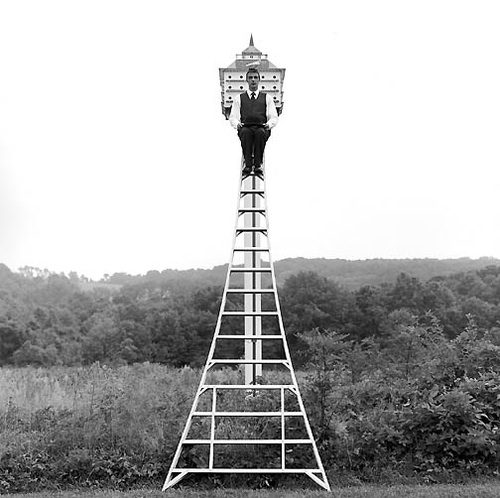
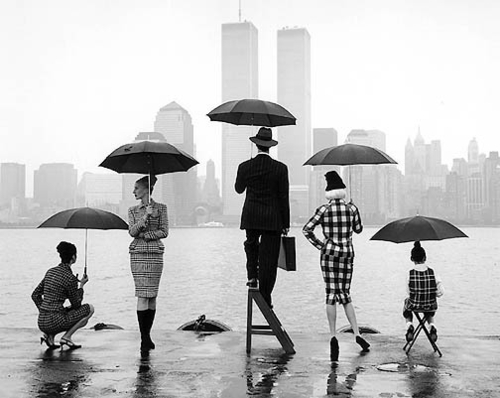
In all of your photos, you can tell that you put a lot of thought into order and composition. Do you ever break the rules, and as a photographer do you think you should?
Cartier Bresson was the master of composition. There have been many, Eugene Smith, Cartier Bresson, who have great compositional sense. I think composition in photography is very similar to rhythm in music. If you have great rhythm you have great compositional sense.
Composition is derivative from classical tenants. That is, how things fit into the environment, their placement and scale in the environment, the relationships between objects and people, the photographer and his subject – those are all classically based sentiments.
In poetry, if one writes in iambic pentameter that is similar in cadence to body rhythms. That's why people always like it when something's in meter because it feels comfortable to them. It resonates with the human heartbeat.
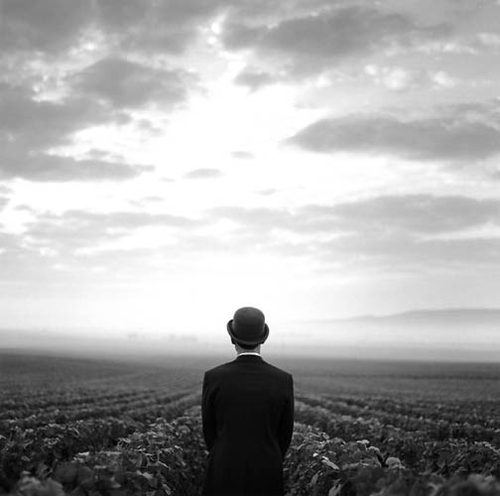
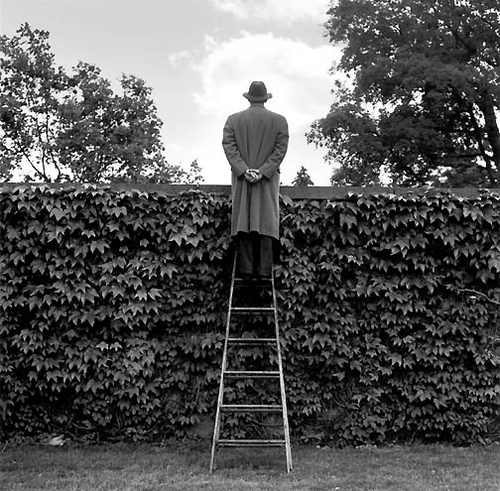
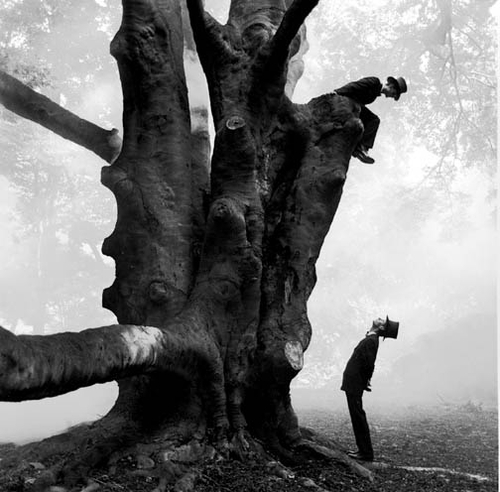
Many of the characters in your photos seem as though they're searching for something. Is this deliberate and does this represent something personal?
The blog is, in a way, a response to that; it's one long answer to that quest. I think everyone is searching for something, whether it's meaning in life or purpose in life or reflecting on who they are, how they fit into their world, if what they are doing in their life is important to them. I think in almost every instance, anyone who reflects on their existence is wondering about their purpose.
I don't know my function in life. That's probably the quest. Whether people articulate it or not, I think everyone is doing the same thing.
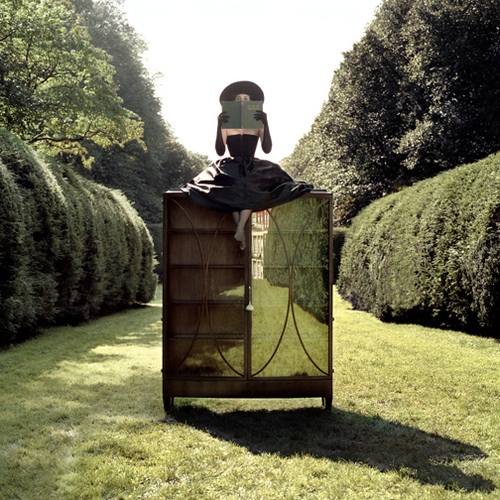
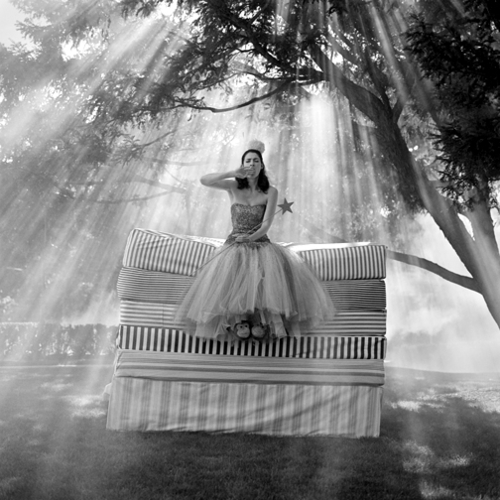
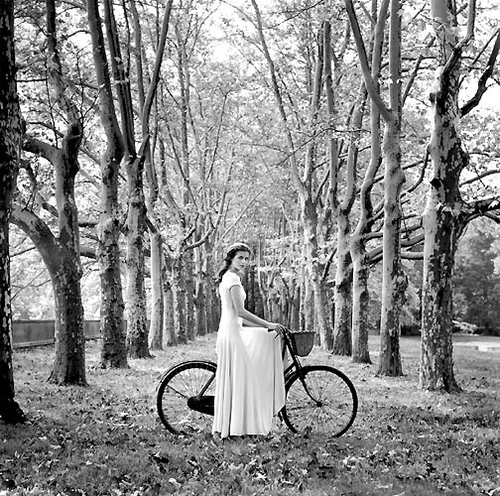
How important is storytelling to you? Do you work on your ideas before you shoot?
I do not have any preconceived or preordained ideas. The location is the key in which I compose in. Once I find the location, everything sort of falls into place for me. It's the location that drives all the pictures.
Once I set a final location, I don't really even want to know what the pictures are going to be like. I never shoot Polaroids, I don't shoot any pictures with any real intent of knowing what the final pictures are going to look like. It just provides the framework or gives some form and, out of that, sort of spontaneously, all these pictures arrive.
One of the things that is interesting, and I think people are always intrigued by this, is that though my pictures seem so composed, they are extremely spontaneous. 95% of the pictures I take, I didn't even know I was going to take them a few minutes before.
Part 2 of this interview will be coming next week. Until then, visit Rodney Smith's website and blog to learn more.













































































